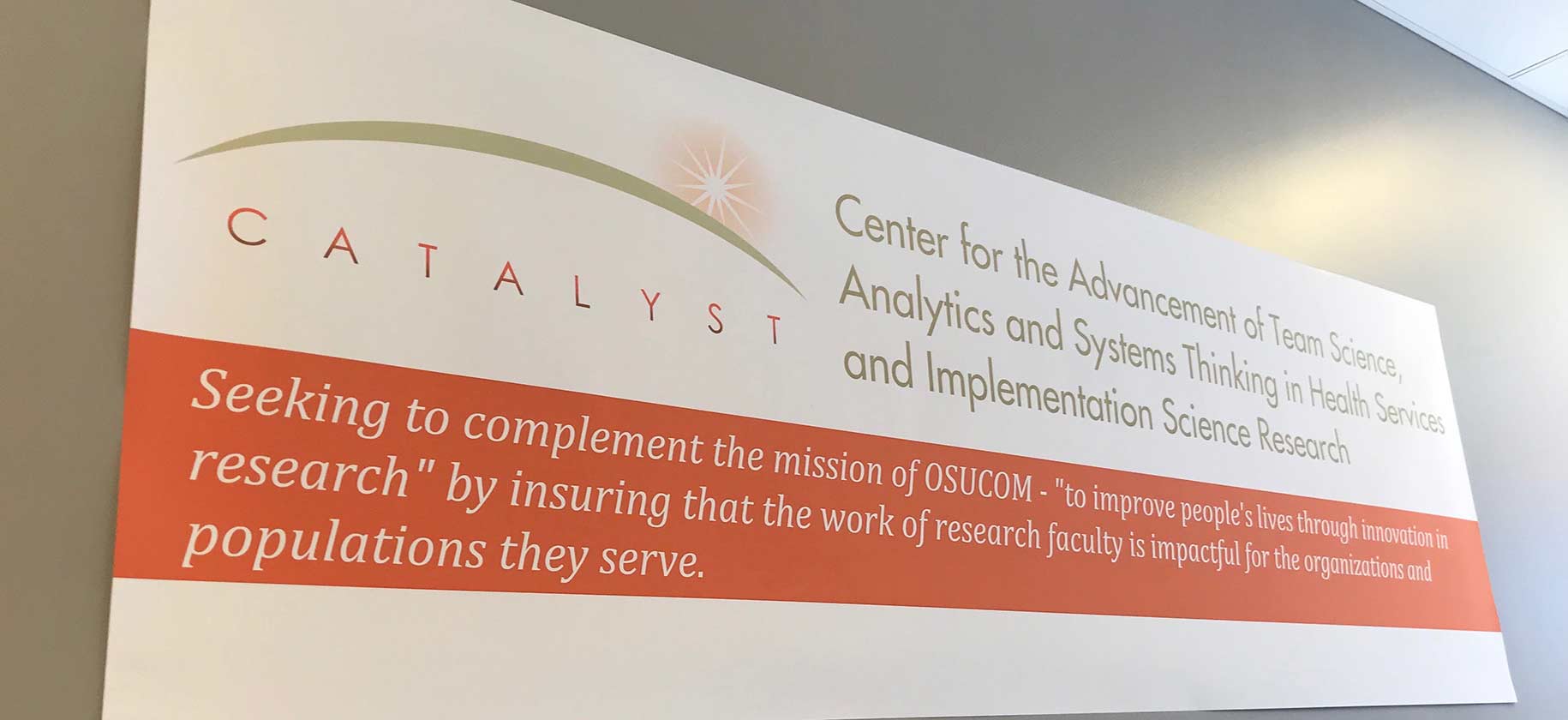
CATALYST welcomes Dr. Aravind Chandrasekaran for Research Seminar presentation on daily huddles in primary care

By Tyler Griesenbrock
CATALYST scientific editor
Published March 19, 2019
The inaugural CATALYST Research Seminar will feature a presentation by Aravind Chandrasekaran, PhD, an Associate Professor in Management Sciences in the Fisher College of Business at The Ohio State University and the academic director for the Master of Business in Operational Excellence, an executive master’s program preparing leaders to drive, build and sustain a continuous learning culture in organizations.
Dr. Chandrasekaran’s talk is scheduled for noon to 1 p.m. Thursday, May 9 in Suite 531 of 460 Medical Center Drive in Columbus, Ohio, the home of CATALYST: the Center for the Advancement of Team Science, Analytics, and Systems Thinking in Health Services and Implementation Science Research. As a center in the College of Medicine at The Ohio State University, CATALYST is focused on advancing research and discovery in the delivery of health services across the continuum of care using a team science approach.
In his presentation, titled “Effect of Process Improvement Initiatives through Daily Huddles on Team and Operational Outcomes: A Randomized Control Trial,” Dr. Chandrasekaran will offer insights from a randomized control trial implementing coordinated problem solving among heterogeneous groups of employees. He and his research partners studied “the role of daily problem solving implemented in the form of daily huddles in primary care,” according to an abstract summarizing their work.
“Despite the prevalence of huddles in industry, research offers little evidence on how to design and implement them,” Dr. Chandrasekaran and his co-authors wrote.
The issue was examined by running a six-month randomized controlled experiment that involved 30 teams and more than 300 participants in a major U.S. health system. Dr. Chandrasekaran was joined on the project by Brad Staats, PhD, of the Kenan-Flagler Business School at the University of North Carolina Chapel Hill; Marc Tumerman, MD, of the Department of Family and Community Medicine at the Mayo Clinic in Sparta, Wisconsin; Peter Ward, DBA, Senior Associate Dean at Ohio State’s Fisher College of Business; and Dave Rushlow, MD, the Chief Medical Officer for Mayo Clinic Health System – Franciscan Healthcare in La Crosse, Wisconsin.
“Initial results suggest no significant improvements between treatment and control teams among team outcomes (psychological safety, team learning and knowledge creation) or operational outcomes (vascular and asthma screening care). This result questions the claims made by non-experimental studies on the benefits from coordinated problem solving. However, additional analysis revealed that compliance to the process plays an important role in the efficacy of the practice,” they wrote.
The study found that “sustained commitment to daily problem solving requires active physician leadership of the team” and not just offering high-level support. During this talk, Dr. Chandrasekaran will offer insights on how to implement process improvement programs in high-contact settings such as health care organizations.
Dr. Chandrasekaran received his PhD in Operations and Management Sciences from the University of Minnesota. His research investigates innovation, learning and knowledge creation issues areas including high-tech R&D, manufacturing and health care delivery. In recent years, he has begun to study the challenges involved in developing patient-centric health care models by conducting field experiments in collaboration with physician and nursing leaders.
His work has won several awards, including the 2017 Poets and Quants 40 under 40 Top Business School Professors, 2012 INFORMS-Industry Studies Best Paper Award, 2013 Carol J. Latta Emerging Leadership Award for Outstanding Early Career Scholar by the Decision Sciences Institute and the 2015 Pace Setters Award for Research.
For more information about CATALYST, visit go.osu.edu/catalyst.
